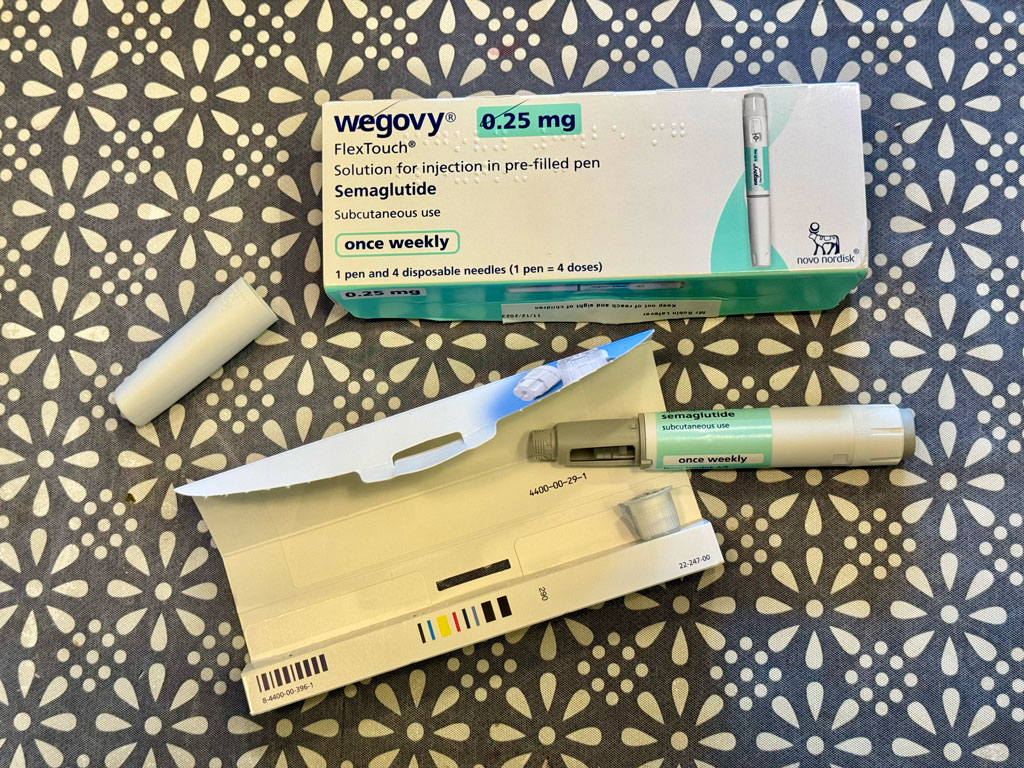Wegovy
Wegovy

A new and promising drug to assist with alcohol problems is now in second-stage trials.
There is some exciting news for people with alcohol use disorder and possibly other addictions from research carried out at Oklahoma State University. When the weight reduction drug Wegovy was trialled, it was noticed that people who had excessive alcohol use appeared to reduce their drinking massively or stop. This led to first-stage trials specifically for Alcohol Use Disorder, which have gone quite well. Next-stage trials are underway, and this might prove to be an exciting aid, not just for alcohol problems but for other addiction problems also.
Wegovy is a glucagon-like peptide-1 (GLP-1) analogue. GLP-1 is a hormone that is involved in regulating appetite and food intake. It may do this by modulating GABA and Dopamine, both neurotransmitters which seem to be associated with alcohol and other addictive processes.
So far, the results appear more impressive than other medications that have been used to assist with alcohol problems, such as acamprosate or naltrexone. However, we should still be cautious as these are early-stage trials. We should also be cautious about this being seen as a simple cure. Mental health issues such as AUD are typically complex and multifaceted, so the need for a multi-modal treatment model will remain very necessary. Still, it’s nice to see trials with such promising results.
For a more in-depth look at the science, please read on.
================================================
Semaglutide, a medication primarily used for the treatment of diabetes and weight loss, is now being studied for its potential to reduce symptoms of Alcohol Use Disorder (AUD). This research is based on the observation that patients who were treated with semaglutide for weight loss showed a significant decrease in their AUD symptoms[1].
The first published evidence of semaglutide’s effect on AUD came from a collaboration between clinicians and scientists at the OU-TU School of Community Medicine and Oklahoma State University Center for Health Sciences. The study involved six patients who were receiving semaglutide for weight loss. These patients demonstrated a significant decrease in their Alcohol Use Disorders Identification Test (AUDIT) scores, indicating a reduction in AUD symptoms[1].
Further research has provided real-world evidence of reduced alcohol consumption in people with obesity taking Semaglutide or Tirzepatide, another GLP-1/GIP agonist. This research involved an analysis of social media posts and a study involving participants who self-reported taking these medications. The results showed a significantly lower self-reported intake of alcohol, drinks per drinking episode, binge drinking odds, and AUDIT scores in the Semaglutide or Tirzepatide group compared to the control group[2][6].
Research has also shown that semaglutide can decrease alcohol intake across different drinking models and modulate central GABA neurotransmission. This has led to suggestions that semaglutide could be a potentially novel pharmacotherapy for AUD[3][4][8].
Currently, a clinical trial known as the Semaglutide Therapy for Alcohol Reduction (STAR) study is underway. This double-blind, placebo-controlled study aims to investigate whether semaglutide can be used to treat AUD[5][9].
Semaglutide, a glucagon-like peptide-1 (GLP-1) agonist, has been shown to reduce alcohol consumption, although the exact mechanism is not fully understood. Several theories have been proposed based on research findings:
1. **Modulation of GABA Neurotransmission**: Semaglutide has been found to modulate central GABA neurotransmission, which could potentially influence alcohol consumption behaviours. In animal studies, semaglutide was shown to increase the frequency of spontaneous inhibitory postsynaptic currents (sIPSCs) in neurons from the central amygdala (CeA) and infralimbic cortex (ILC) of alcohol-naive rats, suggesting enhanced GABA release[3][6].
2. **Influence on Dopamine Signaling**: Semaglutide may affect the brain’s reward system by binding to receptors involved in dopamine signalling, particularly in areas like the ventral striatum, which includes the nucleus accumbens. These brain regions play a significant role in motivating us to seek out and enjoy rewarding experiences[5][8].
3. **Reduction in Alcohol-Induced Reward**: Some studies suggest that semaglutide reduces alcohol drinking behaviours, possibly via a reduction in alcohol-induced reward and nucleus accumbens (NAc) dependent mechanisms[10].
4. **Influence on Satiety**: Semaglutide, like other GLP-1 agonists, is known to reduce the desire for food, making individuals feel less hungry. This effect could potentially extend to the desire for rewarding substances, such as alcohol[8][11].
However, while these findings are promising, more research is needed before semaglutide can be officially recommended as a treatment for AUD. We should be cautious since randomised, placebo-controlled clinical studies are needed to verify whether semaglutide is a viable treatment for AUD[7]. It’s important to note that while these findings provide promising insights into the potential use of semaglutide for reducing alcohol consumption, more research is also needed to understand the mechanisms involved fully and to confirm these effects in humans[1][2][4][5][7][9][11].
Citations:
[2] https://www.nature.com/articles/s41598-023-48267-2
[3] https://pubmed.ncbi.nlm.nih.gov/37192005/
[4] https://www.ncbi.nlm.nih.gov/pmc/articles/PMC10363436/
[6] https://pubmed.ncbi.nlm.nih.gov/38017205/
[7] https://www.ncbi.nlm.nih.gov/pmc/articles/PMC10371247/
[8] https://www.sciencedirect.com/science/article/pii/S2772408523029071
[11] https://insight.jci.org/articles/view/170671/figure/4
[12] https://healthnews.com/news/ozempic-wegovy-may-reduce-alcohol-use-disorder-symptoms/
[14] https://insight.jci.org/articles/view/170671/sd/1
[16] https://insight.jci.org/articles/view/170671
[19] https://cardiab.biomedcentral.com/articles/10.1186/s12933-022-01604-7
[20] https://pharmanewsintel.com/news/researchers-explore-ozempic-as-a-potential-addiction-treatment
[22] https://link.springer.com/article/10.1007/s11095-022-03302-1
[23] https://europepmc.org/article/med/37192005
[25] https://link.springer.com/article/10.1007/s11154-023-09825-1
